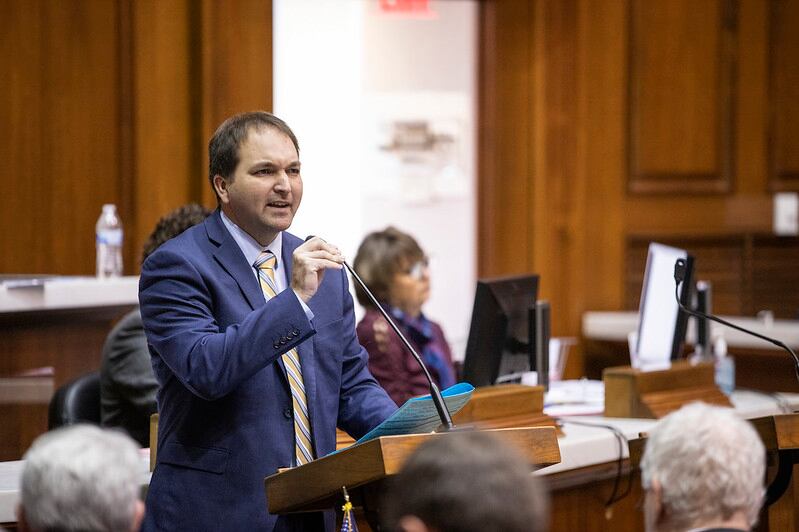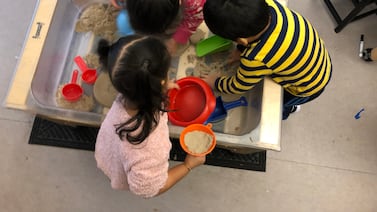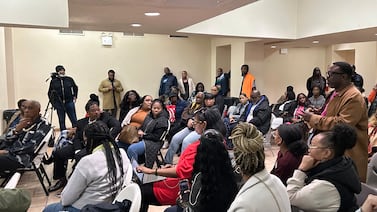Indiana’s 2023 legislative session is under way, and state legislators have introduced more than 100 new education bills and bills impacting schools and students. For the latest Indiana education news, sign up for Chalkbeat Indiana’s free newsletter here.
This article originally published in the Indiana Capital Chronicle.
A bill that would have let Hoosier communities decide if local school board elections should be partisan died in the Indiana House after lawmakers failed to vote on the measure by Monday’s deadline.
That means school board races will stay nonpartisan — at least for now. Language from the bill could still crop up in others before the end of the current legislative session.
House Bill 1428, authored by Rep. J.D. Prescott, R-Union City, sought to add political party identifications to what are now nonpartisan school board elections throughout the state. The legislation was the first to extend “local control” over the issue.
Monday was the deadline for House bills to pass out of the chamber. Prescott did not call the bill for a full chamber vote, however, likely indicating a lack of support from the House Republican caucus.
GOP House Speaker Todd Huston expressed support for optional partisan school board races earlier this month, but noted that members of his caucus are “all across the spectrum” on Prescott’s proposal — “This is one of those bills that doesn’t split along party lines,” Huston said.
Multiple other versions of the bill circulated through the Indiana Statehouse this year and last, to no avail.
A separate proposal that died earlier in the current session would have instead created a blanket requirement for school board candidates to identify as a Republican, Democrat or Independent.
Currently, Indiana is among 41 states where local school board elections are held without any party identification on the ballot for candidates.
The move for partisan school boards bubbled up after local fights over COVID-19 protocols, race issues and book bans.
Latest version of the bill
The latest version of the bill would have given Hoosier communities two options to trigger a referendum vote.
One provision said sitting school board members could decide on their own to vote for their seats to become partisan. But local voters still get the final say. According to the bill, school boards could have taken that action as early as Jan. 1, 2024.
Another option would have permitted the decision to be made through a petition process requiring signatures of 500 voters or 5% of voters in the district, whichever is lesser. A successful petition would put the question on the ballot.
But locals also had the option to do nothing at all, meaning school board elections in a particular district would remain nonpartisan. That was the default option laid out in the bill.
Updated language in the bill clarified that Libertarians and other third-party candidates could run, as long as they declare their party affiliation.
Voters would also have been required to choose, individually, school board members on ballots — a straight-ticket option wouldn’t be available.
Whether through a school board vote or voter-led public question, school board candidates would have had to run in partisan primaries in order to be nominated for the general election, or forgo a primary altogether but have to use a partisan label in the general election.
To claim a party, school board candidates further must have voted that way in the last two primaries in which that person voted.
Candidates for school board additionally could not work for that school corporation, according to the bill.
A school board or community would have been forced to wait 10 years between any public questions if they later changed their minds and wanted to opt-out of partisan school board races.
Indiana Capital Chronicle is part of States Newsroom, a network of news bureaus supported by grants and a coalition of donors as a 501c(3) public charity. Indiana Capital Chronicle maintains editorial independence. Contact Editor Niki Kelly for questions: info@indianacapitalchronicle.com. Follow Indiana Capital Chronicle on Facebook and Twitter.






